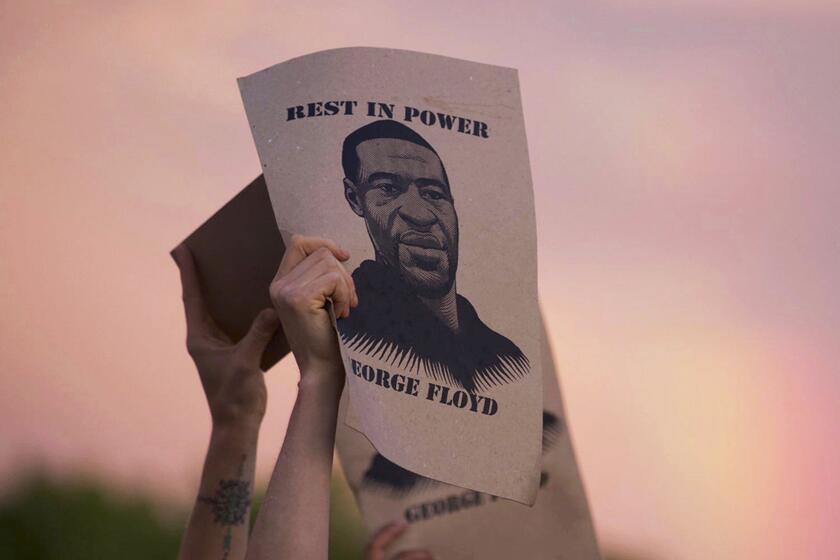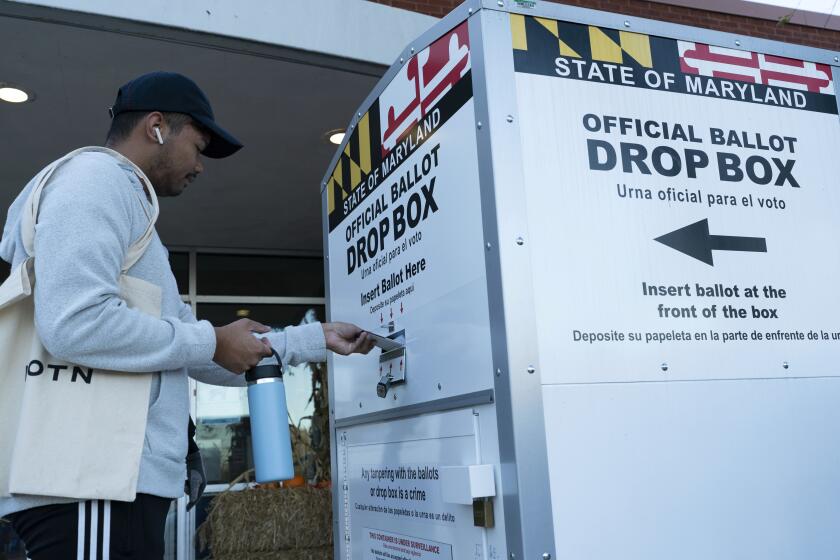Editorial: Mississippi has heroes who fought for democracy. Why is it marking Confederate Heritage Month?

American democracy is far younger than is often supposed. It is younger than the current president, younger than the man most likely to challenge him in November and younger than most United States senators.
True democracy, in which everyone born or naturalized in the U.S. can vote to elect their leaders and representatives, did not immediately follow independence, the Civil War or the women’s suffrage movement. The right to vote was on the books yet out of reach for millions of Americans until at least 1964, when it emerged amid a trio of crucial decisions by the U.S. Supreme Court, a hard-fought Civil Rights Act, and the courage of heroes and martyrs registering Black voters in Mississippi in what was known as Freedom Summer.
Mississippi made an important statement when it adopted a new flag, replacing a Confederate symbol. Then it declared April Confederate Heritage Month.
Mississippi was the great American battleground of freedom and democracy in the 20th century, and it remains central in the struggle to define the meanings of those terms. Mississippians to their credit have created museums and monuments to their forebears who worked to end the Jim Crow laws that imposed racial segregation and restricted Black voting power.
It is the state where Emmett Till was lynched for supposedly offending a white woman, Medgar Evers was assassinated for trying to end segregation, James Chaney, Andrew Goodman and Michael Schwerner were murdered for trying to register Black voters, James Meredith integrated the University of Mississippi and later was shot during a solo “March Against Fear.” (Meredith survived and continued his work. He is now 90.)
And it’s where the governor this year — and almost every year for the last three decades — designated April as Confederate Heritage Month.
George Floyd’s 2020 death turned a traumatic year into a national self-examination of racism, justice and policing. But what has come of it?
Mississippi does indeed have a heritage worthy of celebration. But it’s not the heritage of secession, which was a straightforward effort to promote slavery, as set forth in the state’s declaration of independence from the union. Protecting the practice of slavery was to Confederate Mississippi a defense of Western values.
“Our position is thoroughly identified with the institution of slavery,” Confederate-era Mississippi leaders proclaimed, “the greatest material interest of the world. ... These products are peculiar to the climate verging on the tropical regions, and by an imperious law of nature, none but the black race can bear exposure to the tropical sun. These products have become necessities of the world, and a blow at slavery is a blow at commerce and civilization.”
Florida Gov. Ron DeSantis’ unconstitutional removal of an elected prosecutor is just the tip of a Republican spear that seeks to harm criminal justice reform, Democrats, the Black vote and democracy itself.
Remembering the mistakes of the past could provide some useful context to the news of today, such as the Mississippi Legislature’s rejection last week of a bill to finally erase the 1890 law, targeting Black people, listing crimes that resulted in permanent loss of voting rights. It could help explain the law that took effect this year to create a state-run court, with judges appointed by the majority-white Legislature, with jurisdiction over much of Jackson, where the majority-Black population lost its power to elect its judges and prosecutors.
But Confederate Heritage Month does more than merely remember the wrong part of the past. It honors and sustains it.
Better to honor Mississippians such as Fannie Lou Hamer, who fought to get the Democratic Party to seat a delegation at the 1964 convention that did not exclude the state’s large Black population.
The landmark law provides a check on attempts to weaken the political power of nonwhite voters. But it’s not much of a protection if it can’t be enforced.
“Is this America, the land of the free and the home of the brave,” Hamer asked, where “our lives be threatened daily because we want to live as decent human beings?”
In 1994, 30 years after Freedom Summer, Mississippi and several other former Confederate states — Alabama, Florida, Georgia, Louisiana and Texas — began setting aside April to remember their secessionist and racist legacies. Another 30 years later and we are still fighting battles over voting rights and democracy.
A election bill will not get a debate in the Senate
California was a union state, and people here like to distinguish themselves from their Southern counterparts. So it’s useful to remember that in 1964, as people were battling for the right to vote in Mississippi, Californians repealed the Rumford Fair Housing Act so they could continue to deny housing to buyers or renters based on their race.
We tell ourselves we’ve moved on, but the legacy of such discriminatory policies remains. Of the tens of thousands of people living on our streets, a disproportionate number are Black.
An appeals panel backs a law facilitating racially based challenges to at-large elections.
Mississippi, by contrast, does not appear to have a large homelessness problem, although that’s probably because its extreme poverty keeps housing costs low.
In 2020, as the nation moved from COVID to George Floyd protests and from lockdown to racial reckoning, Mississippi retired its Confederate-oriented flag and adopted a new one featuring a magnolia. It was a symbolic but important step into the future.
We’re still struggling, though — in Mississippi and across the country — trying to decide whether to keep moving forward or take a giant step into the racist past.
More to Read
A cure for the common opinion
Get thought-provoking perspectives with our weekly newsletter.
You may occasionally receive promotional content from the Los Angeles Times.















